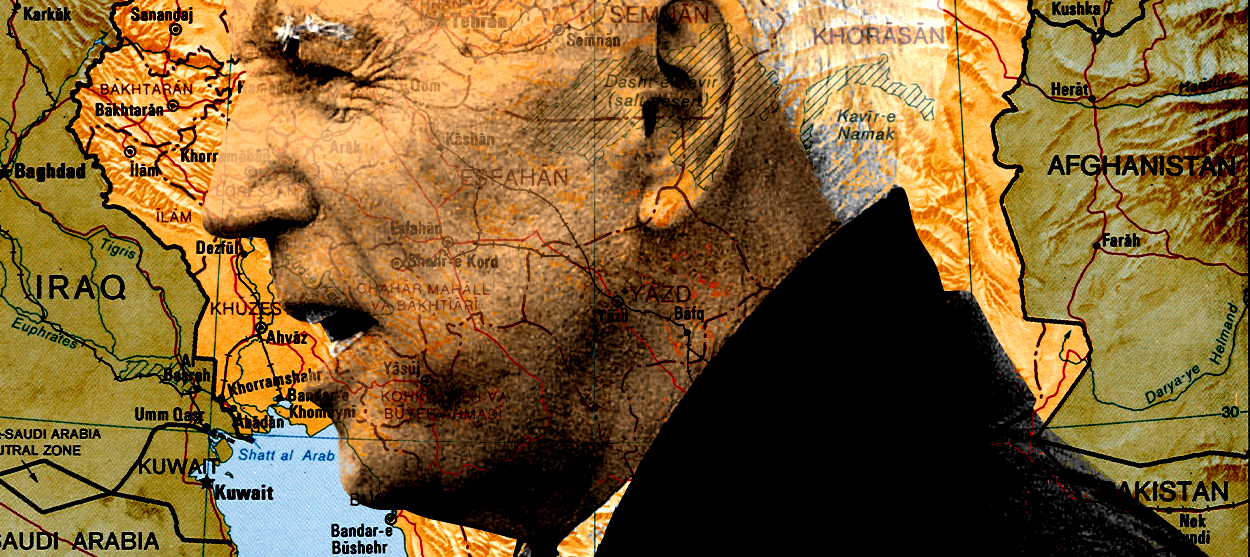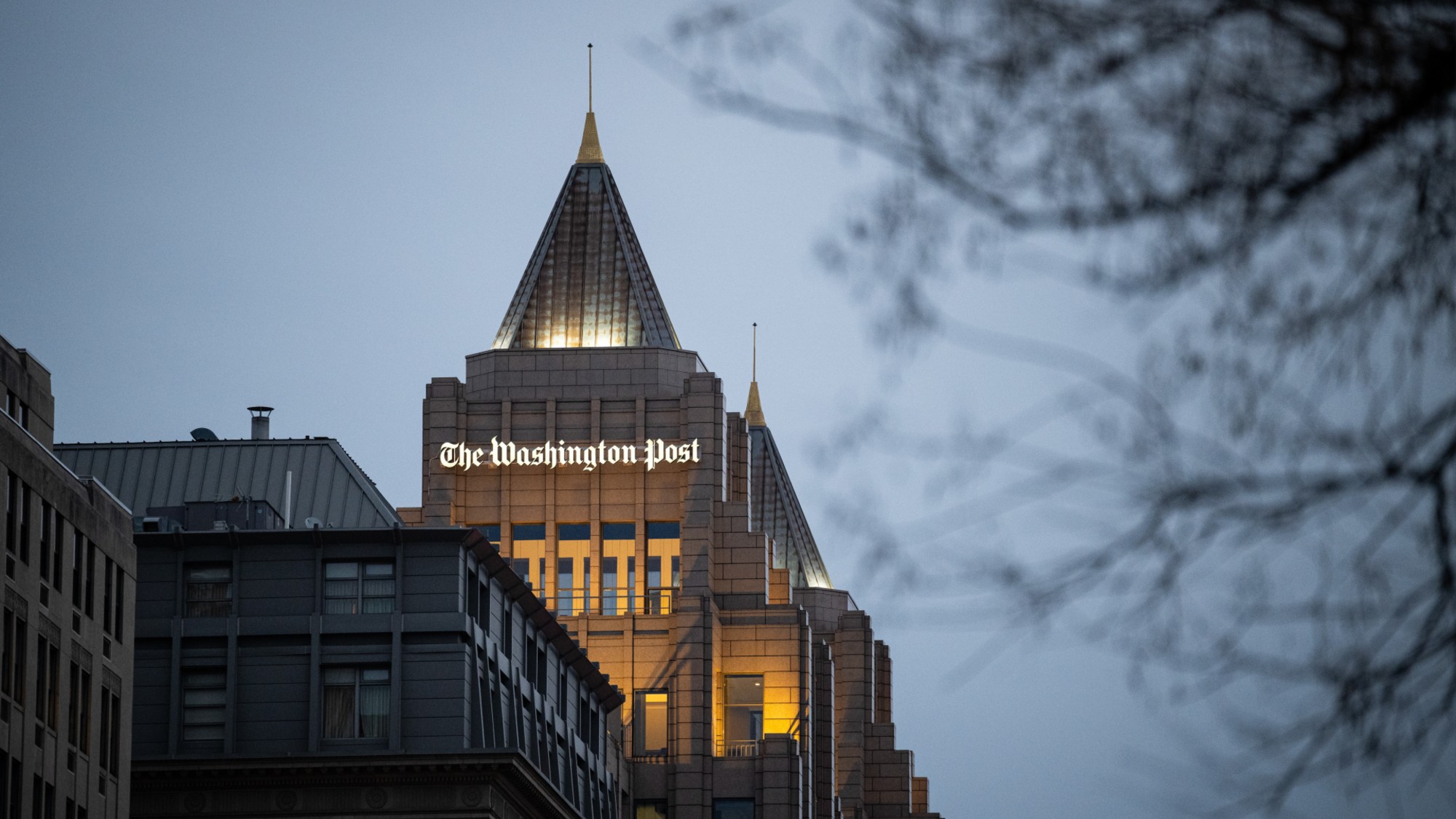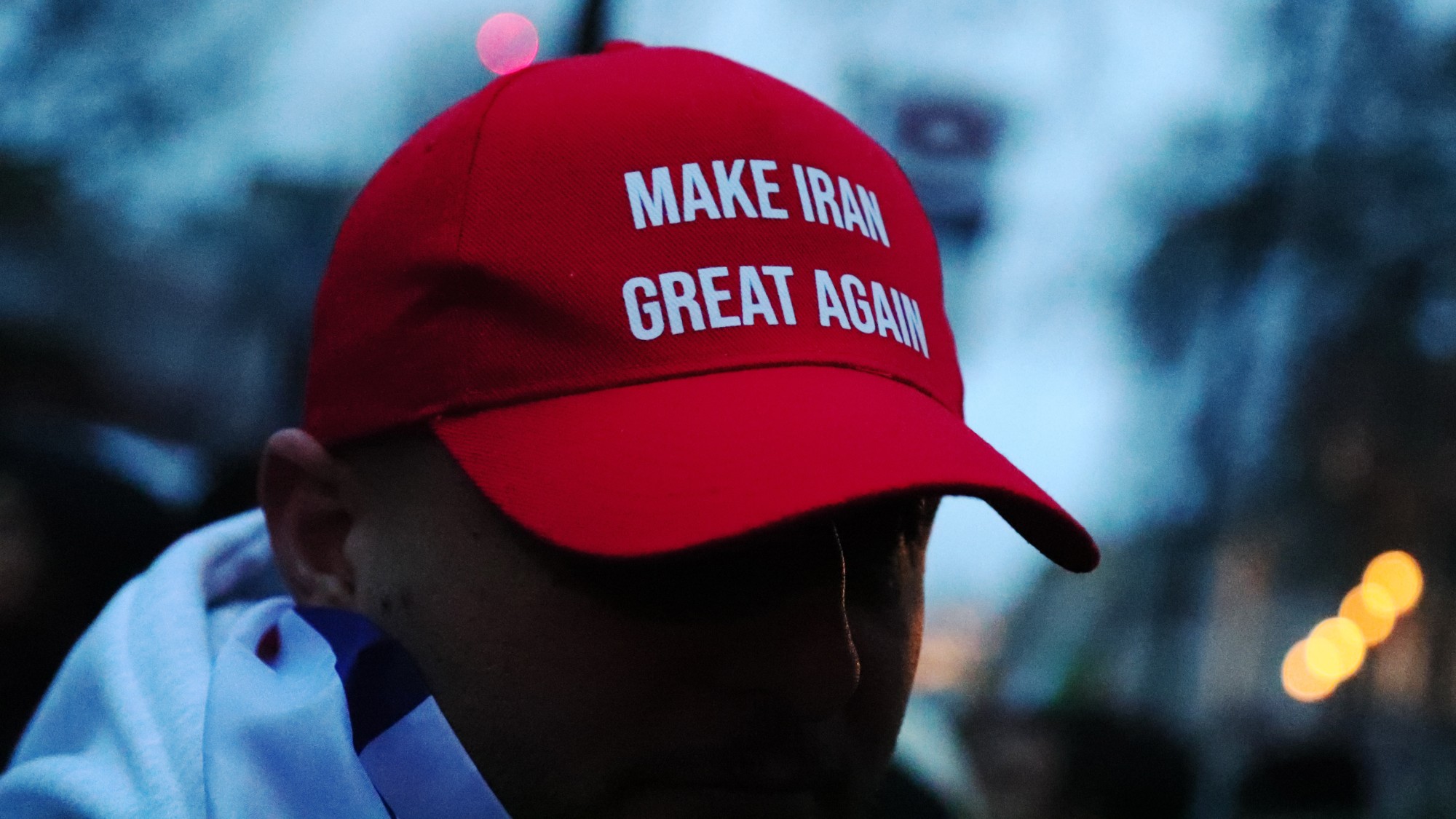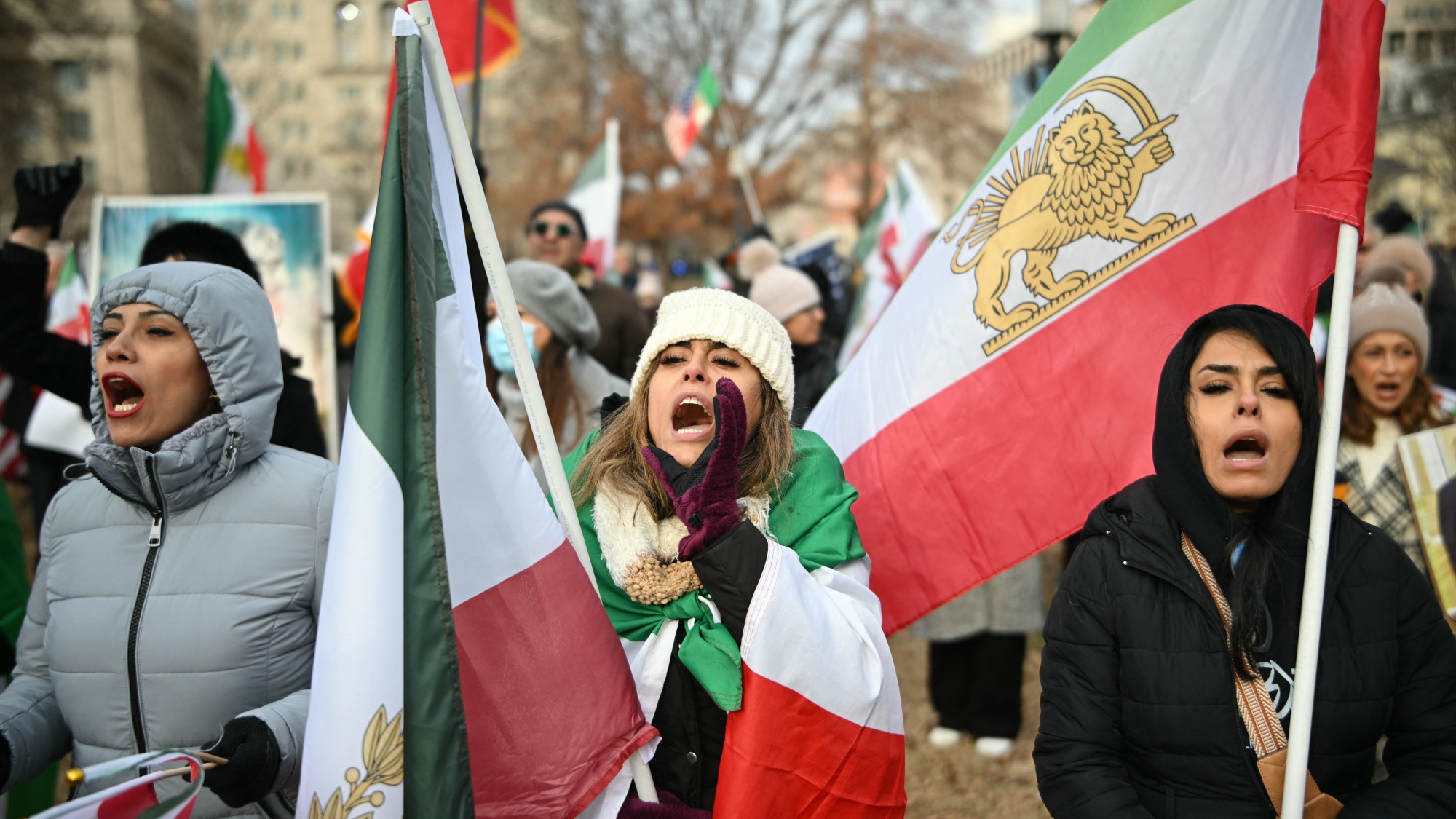Biden's baffling Iran posture
He's declining the easiest, biggest foreign policy win on offer


A free daily email with the biggest news stories of the day – and the best features from TheWeek.com
You are now subscribed
Your newsletter sign-up was successful
The United States and Iran have been stuck in a stupid game of chicken.
Leaders of both countries say they want to restore the Iran nuclear deal to its original state: with the U.S. as a member and Iran in full compliance with its strictures. But both sides want the other to go first. Tehran has asked Washington to drop the sanctions former President Donald Trump reimposed after leaving the pact in 2018, and Washington demands Tehran return to compliance before sanctions are revoked.
On Monday, however, Iran proposed a new way forward: Let the European Union, another party to the deal, manage a simultaneous return. The U.S. could re-enter the agreement, nixing sanctions per its terms, while Iran resumes compliance at the same time. Bafflingly, the Biden administration said no.
The Week
Escape your echo chamber. Get the facts behind the news, plus analysis from multiple perspectives.

Sign up for The Week's Free Newsletters
From our morning news briefing to a weekly Good News Newsletter, get the best of The Week delivered directly to your inbox.
From our morning news briefing to a weekly Good News Newsletter, get the best of The Week delivered directly to your inbox.
This rejection is incomprehensible. It bucks President Biden's campaign pledges — to say nothing of political strategy and common sense. This should have been an easy, early win for Biden. Now it could set him up for a grave failure.
To understand the magnitude of the opportunity Biden passed on Tuesday, a little recent history is in order. The Joint Comprehensive Plan of Action (JCPOA) was negotiated by the Obama administration and signed in 2015. It constrained Iran's nuclear activities significantly, and independent inspections found — as even the Trump administration acknowledged — Iran kept its side of the bargain. In return, the U.S. and other participants lifted nuclear-related sanctions.
The deal's restrictions were time-limited and didn't curb other Iranian arms build-up (like ballistic missile construction). Still, a successful JCPOA could have served as the foundation of a new era for U.S.-Iran relations and, hopefully, a shift toward greater freedom and prosperity for the people of Iran.
Instead, Trump was elected. Eager to undo anything credited as his predecessor's success and deluded enough to believe he'd exact a better second deal with Iran after breaking faith on the first one, Trump withdrew the United States from the JCPOA in 2018. Then he reimposed sanctions the pact had lifted, and he ordered other participants, including European allies, to enforce the sanctions too.
A free daily email with the biggest news stories of the day – and the best features from TheWeek.com
After a year of living with all of the nuclear deal's restraints and almost none of its promised benefits, Iran began breaching JCPOA limits in the summer of 2019. That fall, France mediated U.S.-Iran talks which would've traded sanctions relief for resumed compliance as a basis for additional diplomacy. The arrangement fell through when Trump, in blatant defiance of what he'd privately agreed, announced even more sanctions on Iran in a speech at the United Nations.
After that it was all escalation: The Trump administration recommitted to maximalist demands with zero U.S. concessions, and Iran slowly added to its violations of the JCPOA.
I review all this as a reminder of a simple fact: It is because of the United States — specifically, the Trump administration — that we are in this mess. The Iranian government deserves considerable censure for domestic and foreign policy alike, but it is not the cause of the nuclear deal's breakdown. Tehran complied with the agreement. Trump left it. Tehran accepted the French-negotiated terms. Trump privately assented, then publicly reversed himself.
Now we come to Biden, elected as a repudiation of Trump and with the promise of returning to the nuclear deal. In fairness, his insistence on Iranian recommitment to compliance as a condition of U.S. return, which State Department representative Ned Price reiterated to reporters Tuesday, is not new. That was always a stipulation of Biden's plan. But this is precisely what Tehran offered with the EU coordination idea — the only difference is it makes the mutual concessions simultaneous, not sequential.
Yet Biden said no, which leaves him in a posture remarkably like Trump's. True, Biden is willing to go back to the JCPOA, whereas Trump insisted on a new agreement. Their tactics for getting to those different destinations, however, are the same: Both want Iran to do everything before the U.S. does anything, even though Iran is not the reason the deal is broken.
Trump's self-flattery about his own negotiating talent makes sense of his approach. But Biden's is bewildering. Accepting Tehran's EU coordination proposal would have fulfilled his compliance condition. It would have put Iran further from nuclear weapons capability, which Price called "a challenge that cannot wait." It would have given Biden a quick foreign policy victory, a demonstration of his professed commitment to recentering diplomacy and reconnecting with European allies. It would have given Iran the sanctions relief it needs to fight COVID-19, which Biden has said he wants to provide. It presumably would have had the enthusiastic support of his team, which includes Obama administration alumni who crafted the JCPOA. And it would have been a clear break with Trump, a way to revive the pact he tried to kill, to jettison the naïve and reckless maximalism that defined his diplomacy, and to signal that the United States is a trustworthy negotiating partner.
The door Biden closed may not reopen. "If the new administration does not meet its obligations and remove sanctions in short order, it will destroy the possibility for engagement within the nuclear agreement," Iranian Ambassador to the United Nations Majid Takht-Ravanchi wrote at The New York Times last month. Meanwhile, the Iranian Parliament has set February 21 as a deadline for Biden to lift sanctions Trump reimposed. If that deadline goes unmet, Tehran will accelerate uranium enrichment and stop admitting United Nations inspectors.
Iran's resistance to Trump's "maximum pressure" over the past few years suggests these are credible threats of disengagement. Biden must realize what he's risking with this Trumpy posture. He says he wants a "longer and stronger" deal with Iran. But he's presently heading toward no deal at all.
Bonnie Kristian was a deputy editor and acting editor-in-chief of TheWeek.com. She is a columnist at Christianity Today and author of Untrustworthy: The Knowledge Crisis Breaking Our Brains, Polluting Our Politics, and Corrupting Christian Community (forthcoming 2022) and A Flexible Faith: Rethinking What It Means to Follow Jesus Today (2018). Her writing has also appeared at Time Magazine, CNN, USA Today, Newsweek, the Los Angeles Times, and The American Conservative, among other outlets.
-
 The ‘ravenous’ demand for Cornish minerals
The ‘ravenous’ demand for Cornish mineralsUnder the Radar Growing need for critical minerals to power tech has intensified ‘appetite’ for lithium, which could be a ‘huge boon’ for local economy
-
 Why are election experts taking Trump’s midterm threats seriously?
Why are election experts taking Trump’s midterm threats seriously?IN THE SPOTLIGHT As the president muses about polling place deployments and a centralized electoral system aimed at one-party control, lawmakers are taking this administration at its word
-
 ‘Restaurateurs have become millionaires’
‘Restaurateurs have become millionaires’Instant Opinion Opinion, comment and editorials of the day
-
 Witkoff and Kushner tackle Ukraine, Iran in Geneva
Witkoff and Kushner tackle Ukraine, Iran in GenevaSpeed Read Steve Witkoff and Jared Kushner held negotiations aimed at securing a nuclear deal with Iran and an end to Russia’s war in Ukraine
-
 ‘The mark’s significance is psychological, if that’
‘The mark’s significance is psychological, if that’Instant Opinion Opinion, comment and editorials of the day
-
 ‘My donation felt like a rejection of the day’s politics’
‘My donation felt like a rejection of the day’s politics’Instant Opinion Opinion, comment and editorials of the day
-
 How Iran protest death tolls have been politicised
How Iran protest death tolls have been politicisedIn the Spotlight Regime blames killing of ‘several thousand’ people on foreign actors and uses videos of bodies as ‘psychological warfare’ to scare protesters
-
 ‘It may portend something more ominous’
‘It may portend something more ominous’Instant Opinion Opinion, comment and editorials of the day
-
 What are Donald Trump’s options in Iran?
What are Donald Trump’s options in Iran?Today's Big Question Military strikes? Regime overthrow? Cyberattacks? Sanctions? How can the US help Iranian protesters?
-
 Unrest in Iran: how the latest protests spread like wildfire
Unrest in Iran: how the latest protests spread like wildfireIn the Spotlight Deep-rooted discontent at the country’s ‘entire regime’ and economic concerns have sparked widespread protest far beyond Tehran
-
 The billionaires’ wealth tax: a catastrophe for California?
The billionaires’ wealth tax: a catastrophe for California?Talking Point Peter Thiel and Larry Page preparing to change state residency
